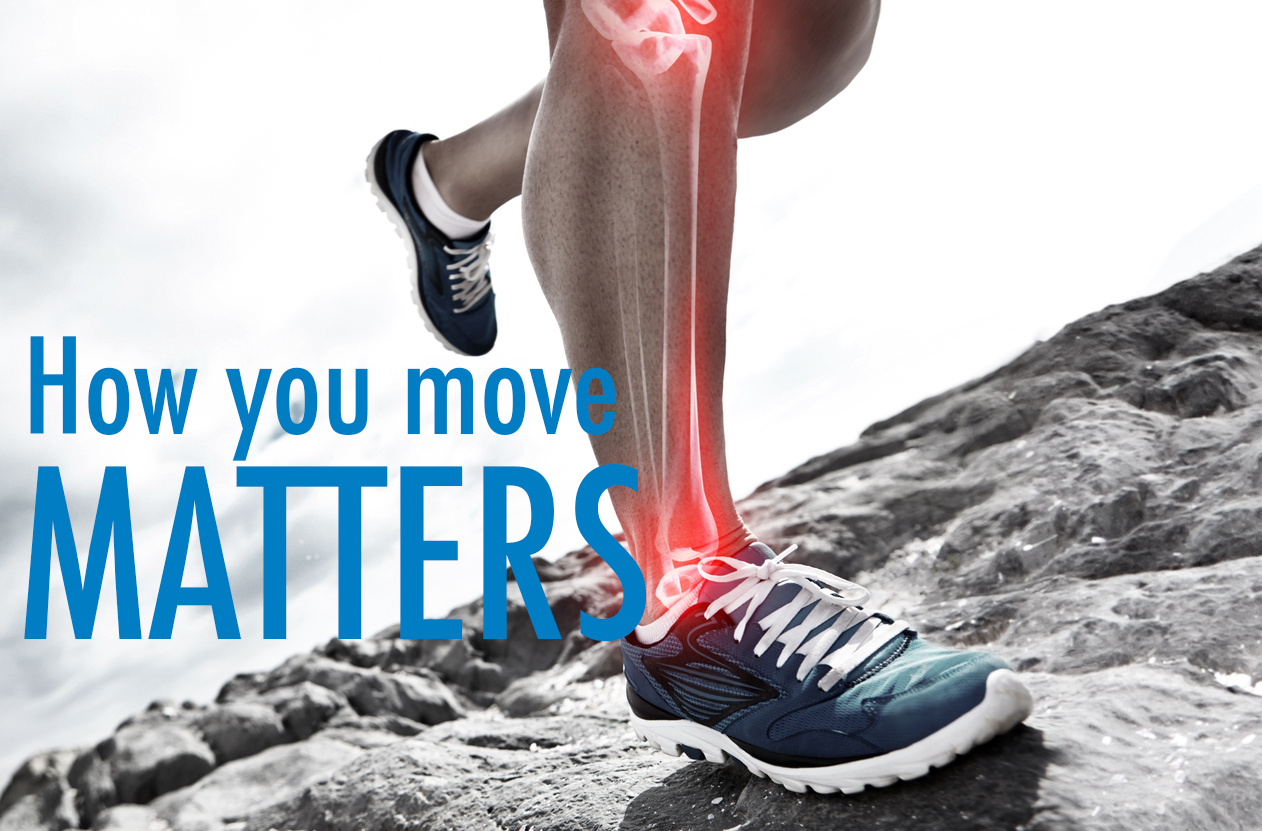Athletes, especially non-elite recreational athletes (most of us!) usually take their movements for granted and rarely consider how their movements during exercising impacts performance. After years of similar workouts, athletes incorrect movement patterns become habitual, and just because you’ve been doing something for years, doesn’t make it right. Incorrect movement patterns are often the reason behind stagnant performance. They put a ceiling on your potential. Even worse, incorrect movements often typically performed contribute to injury. Those of us who are “injury prone” often move incorrectly.
Strength and flexibility exercises sometimes are just not enough. A Functional Movement Screen (FMS) can make all the difference. An FMS assesses a wide variety of interconnected body movements and evaluates an athletes’ musculoskeletal system in action. AnFMS not only helps athletes maximize their performance, but it also objectively determines when an injured athlete can safely return to a sport with a low risk of re-injury.
At Timberlane Physical Therapy, we use an FMS to identify those body asymmetries that are causing weaknesses and imbalances. These conditions hinder training and performance, and increase risk of injury. A screen consists of seven exercise movements. Each exercise is scored on a scale from zero to three. A zero indicates that the particular exercise could not be performed or the exercise caused pain. A top score of three indicates that the exercise is performed perfectly. Individuals with total score of 14 or less is at significant risk for injury and would benefit from a PT-supervised program. It is far better to see a PT proactively to prevent injury than to rehab with a PT post-injury.
Additionally, our daily activities outside of training impacts athletic performance. For example, those of us with stationary desk jobs likely have muscle imbalances that affect our pre- or post-work training. Sitting for extended periods of time can cause a host of musculoskeletal problems. A FMS can pinpoint specific, individual problem areas and form the basis for an effective PT-supervised treatment plan.
Timberlane Physical Therapy recommends FMS to any physically active, fitness-oriented individual looking to perform their best no matter whether its running during the Burlington City Marathon, snowboarding or skiing, or biking around town. While we consider an FMS essential for athletes in sports with high injury risk, it’s useful for anyone, especially those of us in age brackets where we start feeling those daily aches and pains. By addressing our imbalances, inefficiencies, and inflexibilities, we can avoid injuries and add years to a healthy, active lifestyle.
The effectiveness of a FMS is backed by scientific studies in exercise physiology. A FMS supported by physical therapy or personal training is a sure-fire way to stay healthy, to maximize sports performance, and to continue participating in those activities that add joy to our lives without pain and with reduced risk of injury. In short, a FMS is all upside and no downside!


Leave A Comment